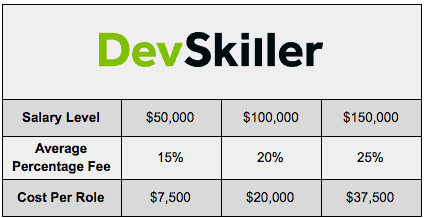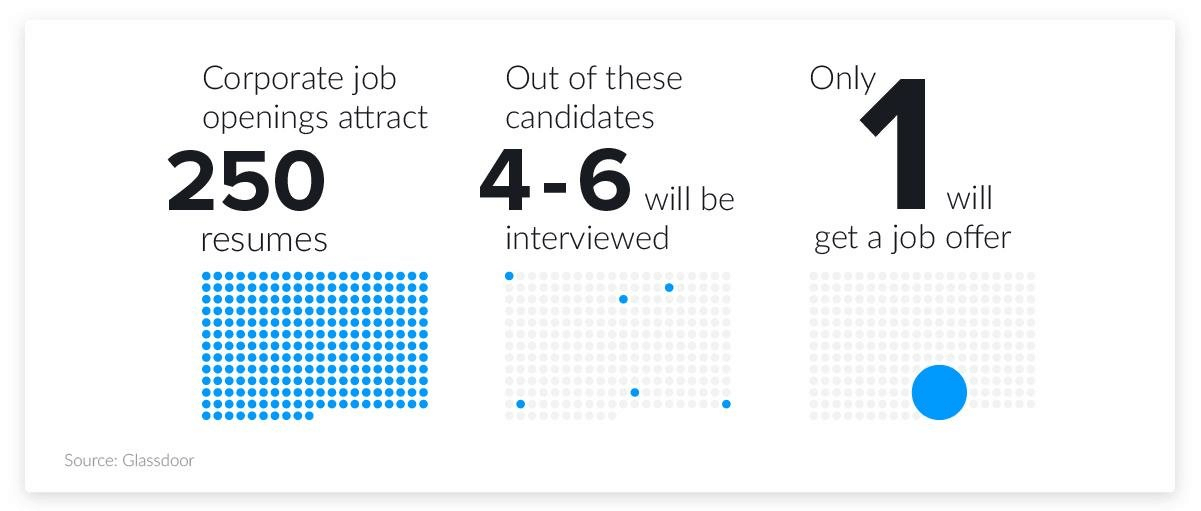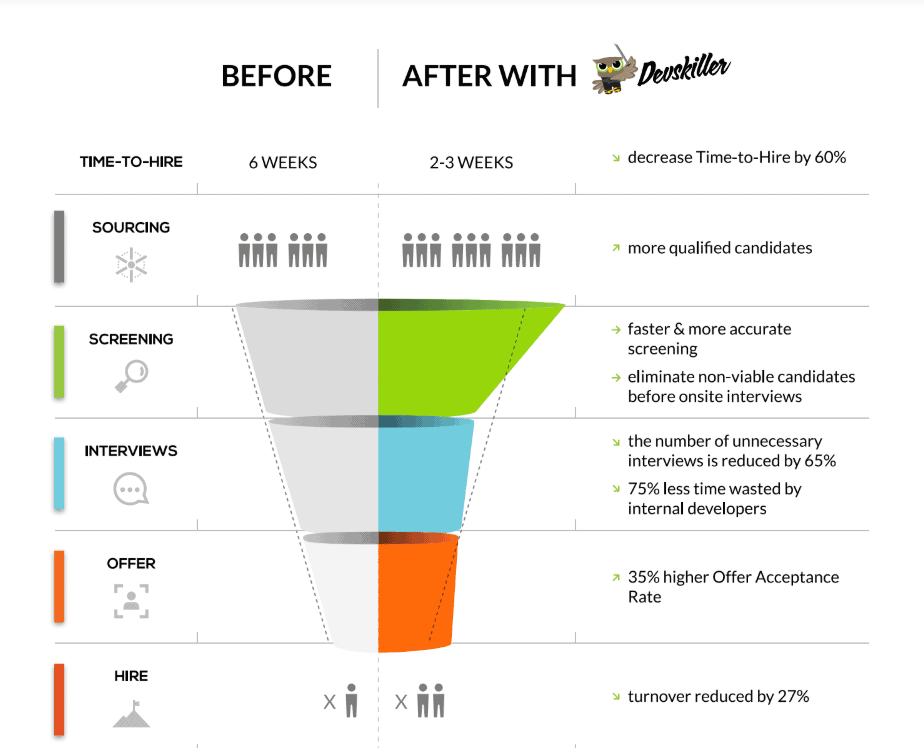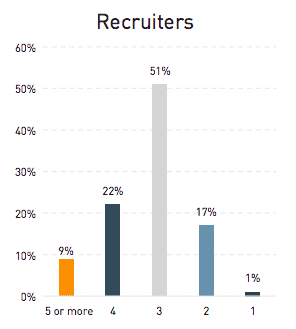
Tech Recruitment: What does a recruiter do?

Have you ever found yourself asking – what does a recruiter do? Maybe you’re considering bringing on a recruiter because your staffing needs are becoming more than you can handle?
Whether it’s that or just your curiosity, answering the question – “what does a recruiter do?” is not a simple one.
Finding the right people is integral to your company’s success. As business author Kamil Toume puts it, “the real competitive advantage in any business is one word only, which is people”.
In industries like the technology industry, the competition for qualified candidates is particularly fierce. Hiring the wrong person not only wastes time, but has massive economic ramifications to your company’s bottom line. Find the right person, and your company will prosper.
That’s why we’ve prepared this article for you to garner a better understanding of a recruiter’s roles and responsibilities.
What does a recruiter do?
A recruiter is the person responsible for finding potential candidates for new job openings. This process involves assessing a candidate’s suitability by analyzing their knowledge, skills, and past experience. Recruiters also negotiate salary expectations, help find the best working situations, provide assistance with cover letters and CVs, and are often involved in the initial onboarding process
Oftentimes, larger companies will employ sourcing recruiters (often referred to as “sourcers”) who have the sole responsibility of finding potential candidates. Sourcers will collect relevant data about qualified candidates, such as names, titles, and job responsibilities. The remaining steps of the hiring process (which we will visit later) are left to separate recruiters.
The lines are often blurred as to who recruiters work for because they work so closely with both candidate and company. However, it is the company that employs and inevitably pays the recruiter to find the right candidate.
 Fonte:Unsplash
Fonte:Unsplash
Recruiter definitions
There are two main types of recruiters:
In-house recruiters
In-house recruiters are employed by the company that is hiring. They are tasked with finding the right candidate when a role internally opens up. Despite being involved in sourcing, screening, and interviewing of all candidates, the final decision is left in the hands of the hiring manager.
In-house recruiters are often referred to as ‘full-hire’ recruiters, because they work full-time for the hiring company. These individuals work for companies that have consistent staffing needs (at least 10 per year).
If the staffing needs of the company don’t warrant a full-time employee then a recruiter can be hired in a consulting capacity. Consultants still identify as representatives of the company but they’re employed on a contractual basis.
External recruiters
External recruiters identify as representatives of an agency or third party. They may be hired by a company that has a hiring surge or simply doesn’t have the resources to employ somebody full-time.
External recruiters often specialize in a specific field such as tech or management. This specialization means they can sift through resumes and find appropriate candidates more efficiently than a recruiter with more generalized knowledge.
External recruiters (like internal recruiters) are responsible for finding the right candidate, but again, the final hiring decision is left to the hiring manager.
Below are some typical examples and definitions of external recruiters:
- Recruitment Process Outsourcing (RPO):
Often the recruitment needs of a company are so overwhelming that they’re outsourced to an external provider. Additionally, the in-house recruitment team may not possess the necessary skills to hire a specialized position like a front end developer, so a specialist is brought in. Both of these situations are subject to the profile of the company, with larger companies often having specialized recruiters in-house. - Contingency:
Contingency recruiters work on a paid per hire basis. This type of recruitment is popular for companies that need a new candidate as quickly as possible. - Executive Recruiter:
Executive recruiters are brought in to fill senior positions like a CTO or head of engineering. Despite their expense, executive recruiters are the best at what they do, and the company has the highest chance of success by using their services.
How much do recruiters make?
Recruiters are either employed or hired by a company, so it is the company’s responsibility to pay their fees. However, how recruiters get paid differs depending on the capacity of their work.
External recruiters will generally work on a commission basis meaning they earn a percentage of the successful candidate’s first-year salary. Below you’ll see a table of typical external recruitment fees with data provided by Australian recruitment firm Harrison Mcmillan.
Internal recruiters are employees of the hiring company and as such work on a salary basis. With that said, some internal recruiters are paid commissions or bonuses for placing candidates into open positions but that depends on the individual company and employment contract.
Both internal and external recruiters annual salaries will vary depending on a number of factors, such as:
- Experience
- Location
- Full-cycle recruiting
- Negotiation skills
- Sourcing abilities
- HR knowledge
- Desempenho
Top-quality recruiters will possess these skills at a minimum, however, tech recruiters need to have industry-specific knowledge and certifications based on the IT industry.
Recruiter responsibilities during the hiring process
Aprovisionamento
A recruiter’s initial responsibility is to source qualified candidates that are suitable for the open position. That means using all of the resources and sourcing tools available to them to find the perfect candidate.
It also means constructing job descriptions. Employer review and online job board Glassdoor, state that a good job description should include the following:
- Company description:
This section should including the company history, logistics, benefits, culture, and values. - Role objective:
A brief overview of the role and main objectives. - Roles and responsibilities:
An in-depth description of what the applicant can expect to be doing on a daily basis. - Experience and qualifications
A set of clear expectations of prior experience and qualifications.
Sourcing IT professionals requires a multi-faceted approach to ensure the best candidates are presented to the hiring manager. That means using social media platforms, going to industry conferences, and attending online and offline meetups with tech professionals.
Screening
The talent pool has been thoroughly searched and the applications have been made. Now all of those applications need to be screened. Recruiters will single out the applications that meet the criteria of the job description and then extend an invitation for an interview.
As seen in the image below, Glassdoor estimates that there are approximately 250 job applications for a single job. That’s a lot of resumes for a recruiter to sift through.
 Fonte: Glassdoor
Fonte: Glassdoor
In the tech industry, the talent gap is vast, so a recruiter must ‘select and reject’ efficiently in order to find the best talent available. The reality is that top developers have multiple opportunities available to them so they will not wait around all day for a decision to be made.
 Technical screening techniques, like skills or competency tests, are vital to focus your resources on the candidates who have the skills you need. At DevSkiller, we pride ourselves on optimizing this process (as seen in the graphic above). The quicker and more efficiently this process is handled, the more likely a recruiter will find the best possible candidate.
Technical screening techniques, like skills or competency tests, are vital to focus your resources on the candidates who have the skills you need. At DevSkiller, we pride ourselves on optimizing this process (as seen in the graphic above). The quicker and more efficiently this process is handled, the more likely a recruiter will find the best possible candidate.
Interview
Once the candidates have been sourced and screened, a select number of them are interviewed. Traditionally, a telephone interview would be conducted to determine a candidate’s suitability however the emergence of video conferencing tools such as Zoom and Skype has modified this process in some companies.
Interviewing techniques differ significantly depending on the industry. Technical interviews are usually competency-based, using powerful tools like our own coding tests for optimal results. The type of perguntas da entrevista also vary greatly for individual positions and roles. Recruiters work closely with the hiring manager to formulate the type of interview and questions asked, specific to the open position.
There is no definitive answer as to how many interviews a candidate undertakes before a job offer is extended. In 2017, the MRI network undertook a recruiter sentiment study that indicated three interviews as the most common answer of those surveyed (as seen below).
Fonte: MRI Network
Each position is unique, so recruiters will interview appropriately based on the level of the position and the individual candidate. At the end of the day, it’s the hiring manager who makes the final decision so a recruiter’s job is to assist them in any they can.
Job offer
The recruiter has fulfilled their obligation to the company by sourcing, screening, and interviewing all of the potential candidates. Now all that’s left to do is extend an offer. A healthy relationship between recruiter and hiring manager will involve collaboration and discussion from both sides before this offer is extended. Oftentimes, the offer is made over the phone before a formally written job offer is presented to the successful candidate.

Staying connected
The job is done, the candidate is comfortable in their new surroundings and the recruiter will move onto their next client. Maintaining a strong recruiter and candidate relationship is essential during the hiring process. With that said, the best recruiters understand that having contact with a qualified and experienced talent pool is vital to their future success.
Specializing in tech recruitment
Becoming a tech recruiter, like any area of specialization, starts with appropriate education and training. A study of 100,000 recruiters listed on Linkedin indicated that the most common areas of study were psychology, business, marketing, human resources, and sociology.
Image: Linkedin
Quality recruiters also perfect their non-academic skills; such as spoken communication, negotiation, listening, and body language, just to name a few. The top recruiters seek self-development regularly attending courses such as negotiation skills courses and seminars.
Technical recruiters should develop their own individual knowledge of the tech profession. That doesn’t necessarily mean being able to code themselves but understanding the difference between different coding languages and general industry jargon. One place to start is with the Curso de Certificação de Recrutamento Técnico DevSkiller. The free course covers the fundamentals of tech recruitment, as well as tried and tested industry tricks and knowledge.
Understanding the job market is key to a technical recruiter’s success. As mentioned earlier, the talent scarcity for qualified tech professionals is becoming increasingly problematic. The best technical recruiters understand this and are agile in their recruitment process. That’s where tools such as Devskiller’s Coding Tests are very helpful. Utilizing all of the tools available to find the best possible candidate is essential to a technical recruiter’s success.
Final word
Les McKeown, CEO of Predictable Success wrote that; “the success of your business is in the hands of your people”. If we’re to answer the question – “what does a recruiter do?”, one could argue that it’s a recruiter’s responsibility to find the right people for a company’s continued success.
Crédito da imagem: Unsplash





